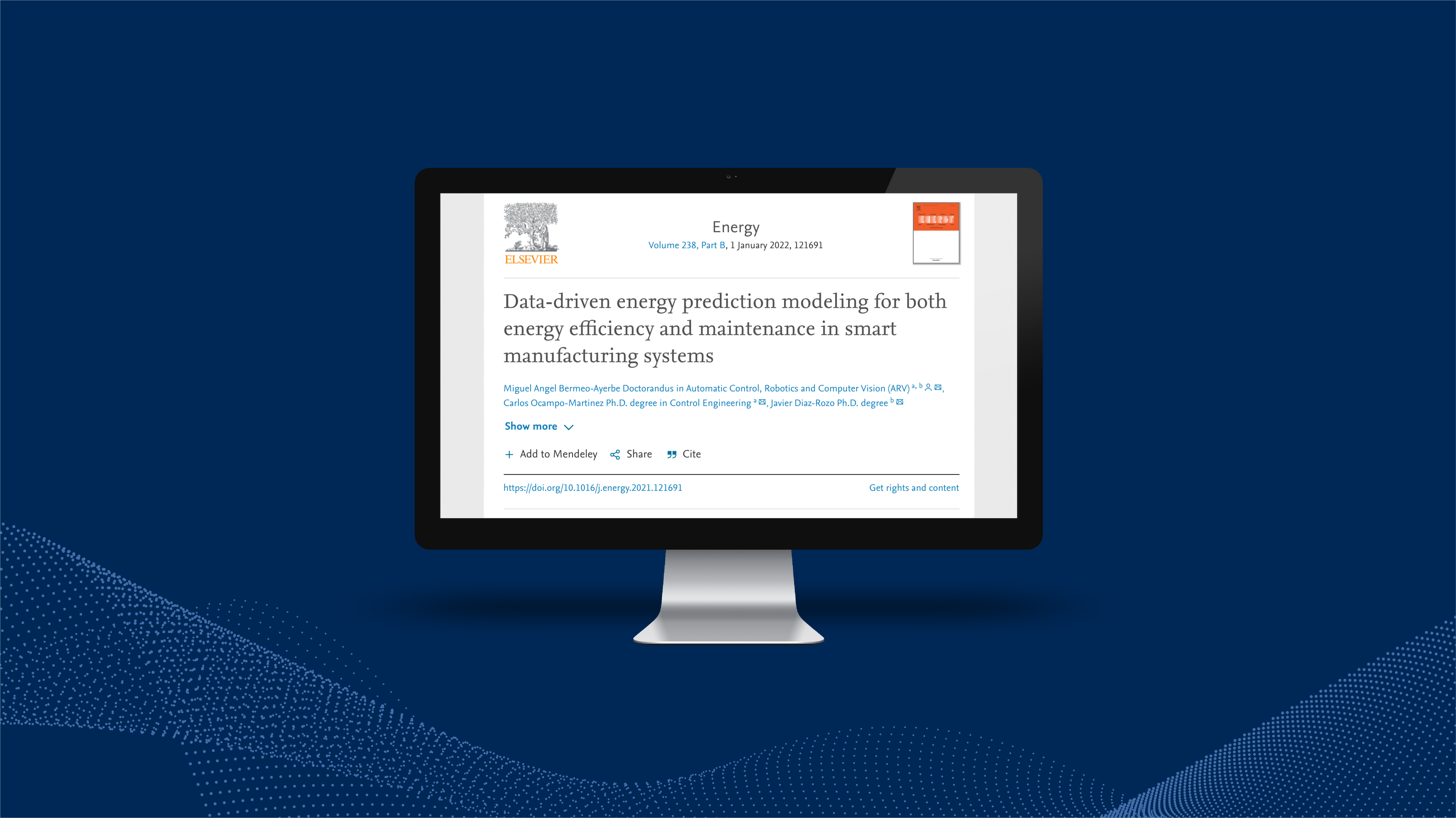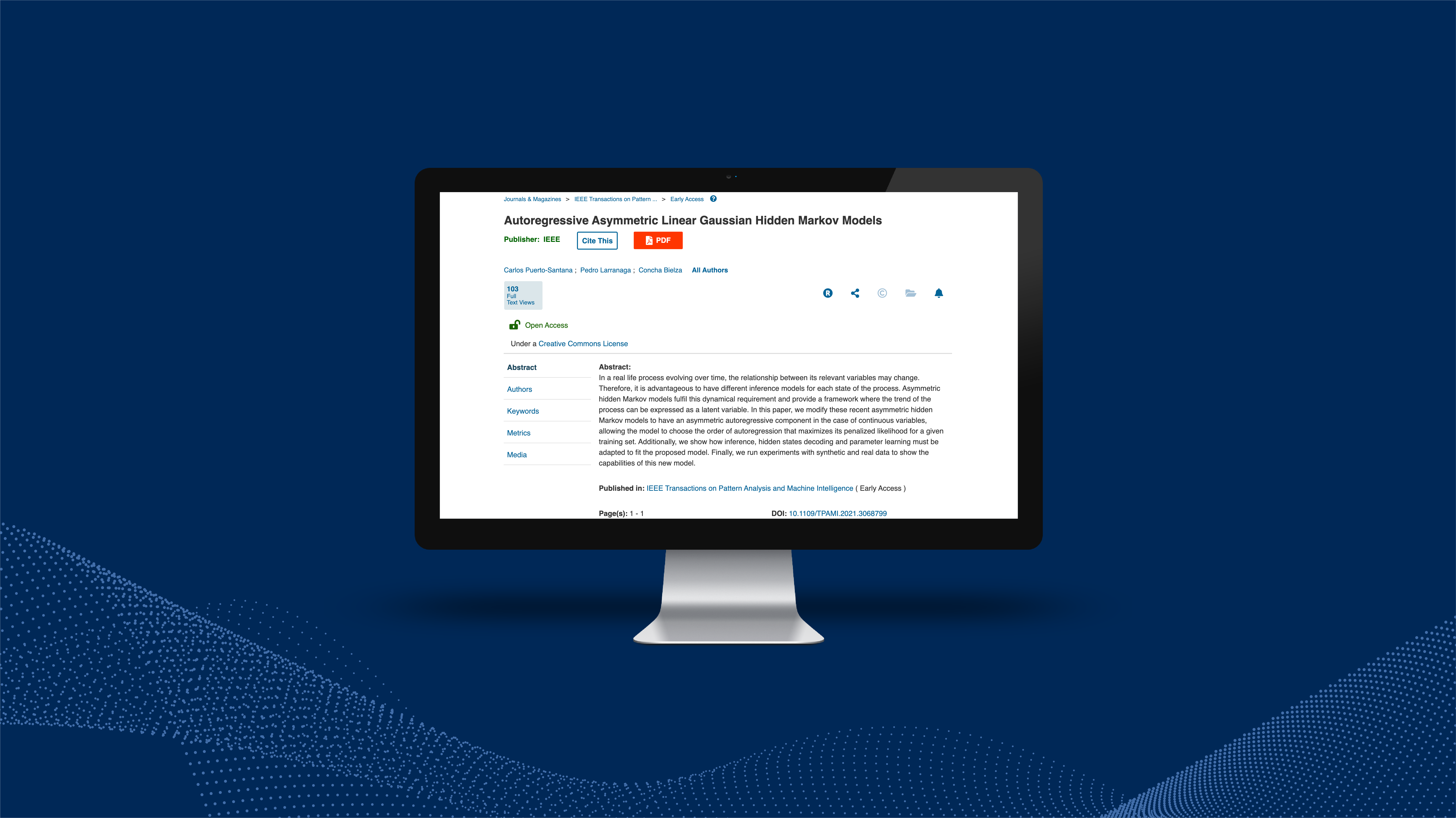.png)
16.11.2021 | Publications
The United Kingdom Journal “Energy”, an international, multi-disciplinary journal in energy engineering and research, has accepted the article “Data-driven energy prediction modeling for both energy efficiency and maintenance in smart manufacturing systems” presented by Aingura IIoT doctoral student Miguel Angel Bermeo Ayerbe at Universitat Politècnica de Catalunya. Being Elsevier Ltd. the publisher, the journal is one of the leading peer-reviewed platforms and an authoritative source of information for analyses, reviews, and evaluations related to energy, which is ranked in the first quartile of SCImago & Journal Rank (SJR) and Journal Impact Factor (JIF). The journal covers research in mechanical engineering and thermal sciences, with a strong focus on energy analysis, energy modelling and prediction, integrated energy systems, energy planning and energy management.
As the article’s abstract reads “The optimization and monitoring of the energy consumption of machinery lead to a sustainable and efficient industry. For this reason and following a digital twin strategy, an online data-driven energy modeling approach with adaptive capabilities has been proposed and described throughout this paper. This approach is useful in developing robust energy management systems that enhance the energy efficiency of industrial machinery. In this way, the dynamic behavior of their energy consumption is modeled without using phenomenological laws. In contrast, traditional methodologies hardly consider such dynamic behavior or use an exhaustive modeling process. The proposed approach includes an adaptive mechanism to consider the natural degradation of machinery. This mechanism is based on a concept drift detector, which detects when the current consumption of the machine is not correctly represented by the model estimation and adapts the model to account for these new behaviors. The concept drift detector has broad applicability in the face of reducing maintenance costs, measuring the impact and evolution of either abnormal behaviors (e.g., failures) or degradation, and identifying which elements change. The proposed methodology has been validated in an industrial testbed. An experiment with three emulated concept drifts was carried out in the testbed. As a result, the proposed adaptive approach obtained more than doubled the fit rate of the energy prediction/estimation compared to the non-adaptive model and successfully detected these changes in energy consumption.”[1]
In summary, the article presents a novel data-based modeling approach focused to characterize the non-linear behavior of energy consumption of industrial machinery. Furthermore, an adaptive capability is introduced to evolve the model online, which allows updating the model when the industrial machinery presents a new behavior that can be due to degradation or modifications in its components. The adaptive capacity enables the application of the methodology in digital twin contexts, having an accurate mathematical representation of the current energy consumption of machinery. Thus, the methodology is focused to improve the energy efficiency process in the industry, and also, contributing to the predictive maintenance field.
More information: https://www.sciencedirect.com/science/article/pii/S0360544221019393



